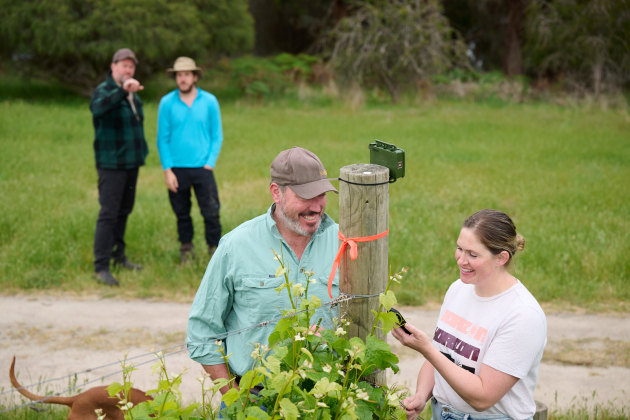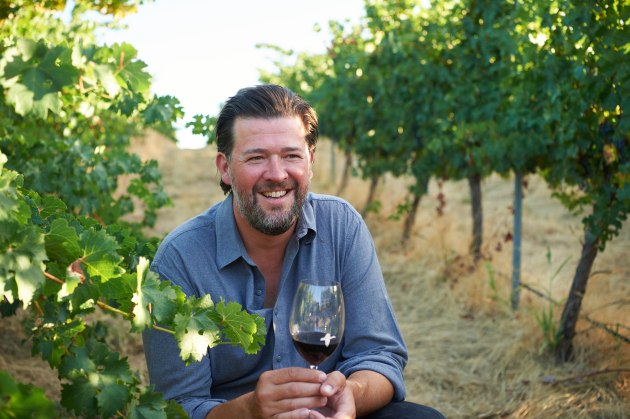Victorian winery Fowles Wine has partnered with the University of New England (UNE) for a study on some of Fowles’ smallest inhabitants – the micro-bats that call the winery home – that could see Australia’s wine industry save $50 million per annum on pest control.
The joint study will investigate whether the micro-bats are consuming pests in the vineyard at the same rate as in cotton farms, with the potential to increase the use of natural resources in the broader wine industry.
Dr Heidi Kolkert and Dr Zenon Czenze from UNE have installed sound recording devices in the Fowles vineyards to better understand the different bat species living there, their insect feeding habits, and the role they play to maintain biodiversity in the local ecosystem. Additionally, the researchers also completed a fauna survey for a more holistic understanding of wildlife at Fowles Wine and the greater region.

Czenze said the project was the most comprehensive study yet aimed at unravelling bat diversity and their ecosystem contributions within vineyards.
“This current project with Fowles represents a leap forward. In the first year of the ‘Bats and Wine’ initiative our preliminary results suggest that bats play a vital role in controlling agricultural pests within NSW vineyard ecosystems,” said Czenze.
Fowles Wine owner Matt Fowles said the winery has always operated with a simple philosophy: “to farm in nature’s image”.
“There are 16 species of insect-eating bats in Victoria, including four endangered species, but we don’t know how many of them are living and foraging in the vineyards. What we do know is that where the bats populate and can echolocate is where the vines and fruit thrive most.
“Every day, the bats can consume 30-100 per cent of their body mass. A colony of 100 bats, weighing 10 grams each, could remove up to one kilo of insects every night,” said Fowles.
In another initiative aimed at harnessing the power of nature, Fowles has also partnered with Euroa Arboretum to establish insectariums – which double as ‘seed orchards’ – comprising diverse native flowering shrubs and trees across their vineyards and farmland.
The insectariums are planted to attract diverse predator and pollinator insect life, adding diversity of native plants in and around the vines and ensuring a natural balance, also allowing the Euroa Arboretum to collect seed to ensure they can regenerate native plant life on the property, or further afield, which is vital in regional Victoria where bushfires are a large threat to many plant species.
Fowles said that in addition, the insectariums provided shelter and nesting space for birds and provide stepping stones for wildlife movement.
“We are literally inviting insects into our vineyard, which is the very different to traditional practices for growing vines. We are encouraging the natural occurrences that mother nature provides,” said Fowles.

The winery has also welcomed beehives to its vineyards, where the bees can work their magic on the vines and cover crops.
“At the end of the day, nature always wins, so why fight against it when you can work with it. There is a purpose for everything that our environment provides. The different species of grass that grow beneath our vines provide sun protection to the soil, the moths are food for the bats, the bees pollinate our local flora,” said Fowles.
These initiatives have helped the winery operate a balanced farming system, where it also repurposes and utilises what is available on the property, such as using restaurant food waste to feed the farm life; composting the skins from the winery; and collecting run-off water for the dams, which is then cycled back into the vineyard.
Fowles said that the vineyard’s latest range of wines – Fieldsong – embodies the commitment to working hand in hand with nature.
“Our main priority is not yield, it’s about embracing the power of nature and surrendering to the chaos and seeing the incredible quality that it brings,” said Fowles.
Fowles Wine is located in Avenel, about 90 minutes’ drive northeast of Melbourne.






